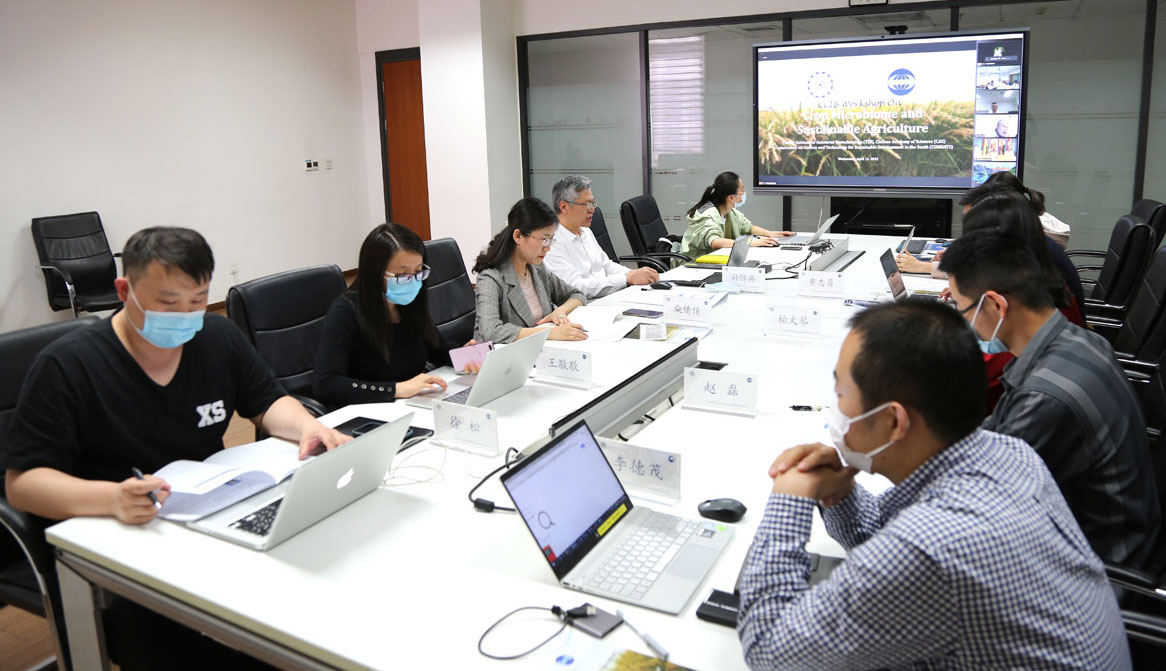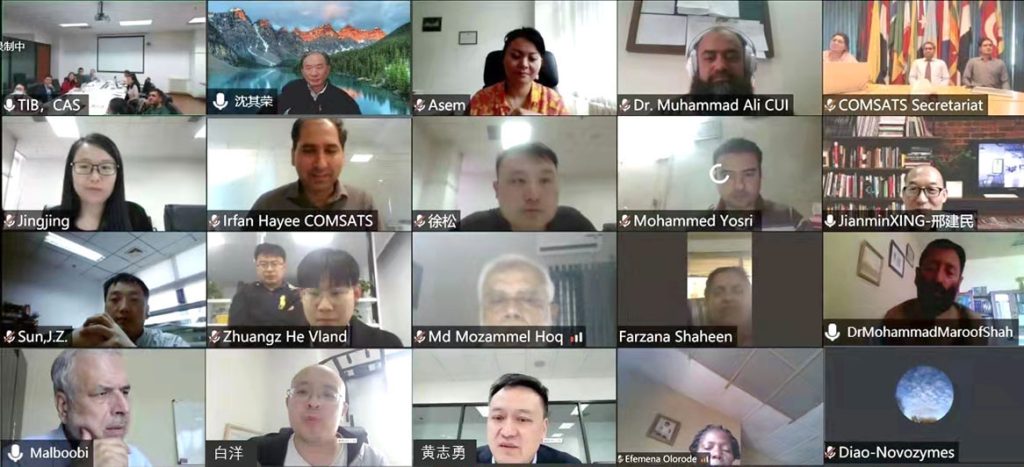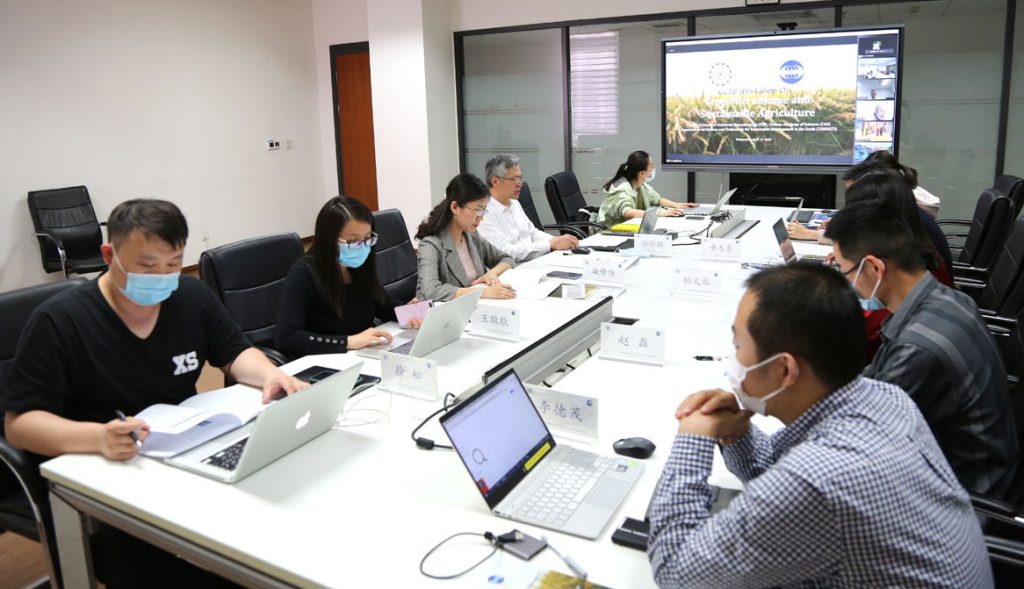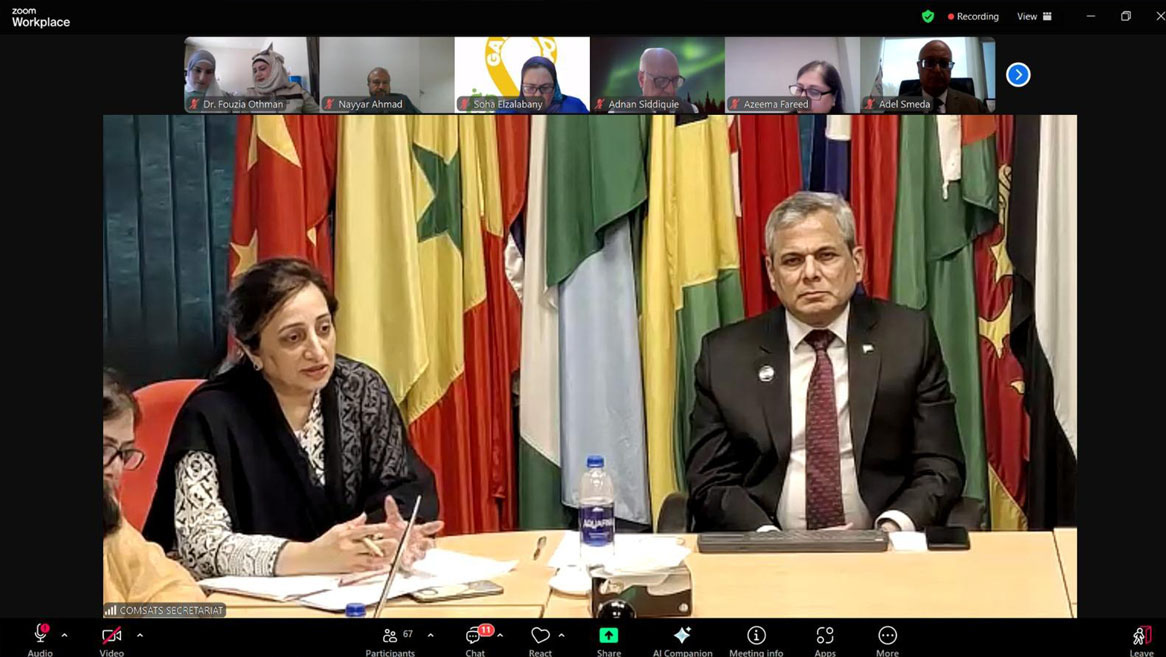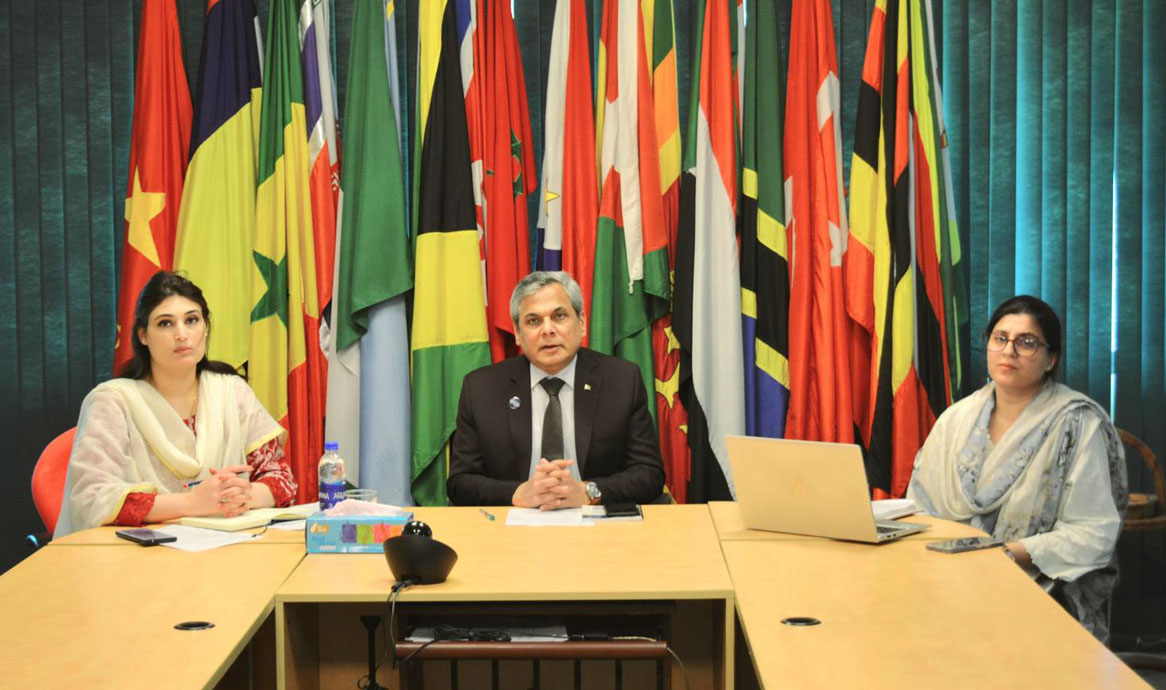COMSATS Joint Centre for Industrial Biotechnology (CCIB) workshop creates a platform to share advancements in research relating to crop microbiome and to discuss its importance in bringing sustainability in agriculture sector.
COMSATS in collaboration with its Centre of Excellence in China – the Tianjin Institute of Industrial Biotechnology (TIB), organized a workshop titled ‘Crop Microbiome and Sustainable Agriculture’ from the platform of COMSATS Joint Centre for Industrial Biotechnology (CCIB). Held under the umbrella of CCIB’s Joint R&D Group on Bio-agriculture on 13th April 2022, the workshop aimed at sharing research progress in the area of crop microbiome and promoting large-scale application of relevant products and technologies by bringing together researchers from all over the world to address key challenges in sustainable agriculture.
Over 80 scientists/ researchers from Bangladesh, China, Iran, Kazakhstan, Nigeria, Pakistan, and Turkey participated in the workshop both virtually and physically.
Welcoming the participants at the opening, Prof. Dr. Jibin Sun, Director of CCIB/Deputy Director-General of TIB, underscored the importance of crop microbiome in improving agricultural production. He opined that crop microbiome has the potential to enhance agricultural productivity; reduce occurrence of plant diseases; diminish the need for chemicals and reduce emissions of greenhouse gases. He also acknowledged the support of COMSATS Secretariat for holding this Workshop.
In his opening remarks, Chairperson COMSATS Coordinating Council, Prof. Dr. Ashraf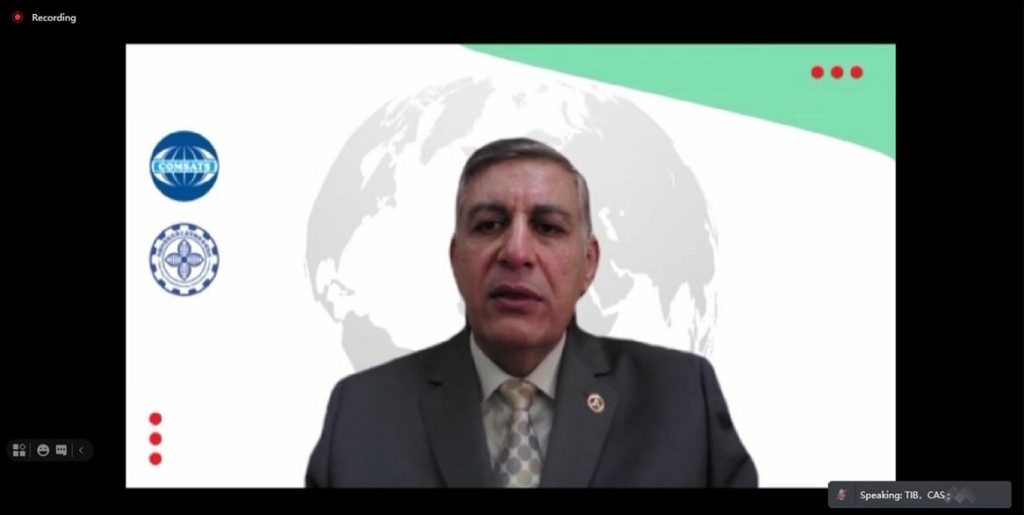 Shaalan, stated that natural ways to supplement conventional agricultural practices must be sought in order to meet the global demand for food, which is anticipated to climb by 70% by 2050. He viewed microbiome as a potential long-term solution to the challenge of food insecurity that has exacerbated due to continuous land degradation, losses in soil fertility, changing climate, and increasing extreme weather events. He communicated COMSATS’ resolve to contribute to building capacities of scientific community in its Member States in crucial areas of S&T.
Shaalan, stated that natural ways to supplement conventional agricultural practices must be sought in order to meet the global demand for food, which is anticipated to climb by 70% by 2050. He viewed microbiome as a potential long-term solution to the challenge of food insecurity that has exacerbated due to continuous land degradation, losses in soil fertility, changing climate, and increasing extreme weather events. He communicated COMSATS’ resolve to contribute to building capacities of scientific community in its Member States in crucial areas of S&T.
The technical proceedings of the workshop featured a keynote address and several presentations delivered by speakers from Bangladesh, China, Iran, and Kazakhstan. In his keynote talk on ‘Manufacture of Bio-organic Fertilizers to Manipulate Soil Microbial Communities’, Prof. Qirong Shen, Academician of Chinese Academy of Engineering (Professor, Nanjing Agricultural University, China), discussed three types of Rhizospheric Microbiome (RM) employed for the manipulation of soil microbiome, i.e., Detoxification RM, Promotion RM, and Immunity RM. He established the significance of organic based fertilizers (OBF) for preventing water eutrophication and ensuring the health of soil for bumper crops. He further deemed OBF to be of high-quality to help control soil-borne diseases and balance soil nutrient supply. Prof. Shen also discussed the manufacturing of OBF using composting, bacillus biofertilizers, and trichoderma biofertilizers.
Prof. Mohammad Ali Malboobi from the National Institute of Genetic Engineering and Biotechnology of Iran, speaking on the topic of ‘Phosphate Bio-fertilizer: A Manifold Solution for Sustainable Agriculture’ noted that over the years, sustainable farming methods and agriculture practices have been adopted that require less land and water resources, are cost-effective, and also ensure environmental safety and food security. Mentioning the importance of phosphate for plant growth, Prof. Malboobi noted that the use of phosphate fertilizer is greater in developing countries than in developed ones. Further during his presentation, Prof. Malboobi discussed integrated nutrient management, monitoring, as well as the advantages of PhosphoBARVAR-2 (phosphate biofertilizer).
Prof. Md. Mozammel Hoq from the Department of Microbiology of the University of Dhaka, Bangladesh, explored the benefits of Bacillus thuringiensis (Bt) as a biopesticide and an alternative to chemical pesticides. He informed that production of Bt biopesticides comprises of several crucial steps, including sample collection, characterization, efficiency testing, and bioassay of potential strains before production. Prof. Hoq mentioned that Bt biopesticides produce insecticidal crystal proteins (ICP) / Bt crystals that are both distinctive and environmental-friendly.
In her presentation on ‘Biotechnological Potential of Soil Cyanobacteria in Agriculture’, Dr. Assemgul Sadvakassova from Al-Farabi Kazakh National University (KazNU) of Kazakhstan, discussed organic material synthesis, nitrogen fixation, phosphorus absorption, BAS generation, and other biochemical processes related to soil cyanobacteria in agriculture. She also highlighted the productivity of isolated cyanobacterial strains on nitrogen-free medium and discussed genetic identification of isolated strain and construction of phylogenetic tree. Dr. Sadvakassova also informed that research on ‘Isolation of Cyanobacteria Axenic Cultures from Rice Fields’ is being supported from the platform of CCIB.
Prof. Yang Bai from the Institute of Genetics and Development Biology of Chinese Academy of Sciences (CAS), China, gave presentation on ‘Interactions Between Plants and Root Microbiome in Arabidopsis and Rice’. It was informed that root microbiome is vital for health of roots as it protects from diseases and stress, as well as helps in nutrient uptake. Prof. Bai informed that rice is an appropriate model for investigating plant-root microbiota interactions since it grows predominantly in paddy soils and has a unique mechanism with root microorganisms. He mentioned that the two main species of rice – Indica and Japonica – have different root microbiota and exhibit significant genomic and phenotypic variation. Other topics discussed by Prof. Bai included clustered triterpene biosynthetic pathways, triterpene mixture selectivity, protocol for high-throughput cultivation, identification of bacteria from the plant root microbiota, and function and mechanism of bacterial microbiota associated with Fusarium graminearum.
Discussing the significance of microbial fertilizer in his presentation, Prof. Zhiyong Huang, CCIB Coordinator of Joint R&D Group on Bio-agriculture, shared that microbial fertilizers are a viable alternative to chemical fertilizers in terms of reducing environmental pollution. He also highlighted the significance of plant growth promoting microorganisms (PGPM) in stimulating plant growth and promoting plant health mentioning them to be both safe and sustainable. TIB, he informed, had established multi-screening system and obtained over 500 PGPMs. Some other topics discussed by Prof. Huang included: rhizosphere microbiome and its effects, relation of plant and microbe, synthetic microbial community (SMC) and its model, synthetic microbial community FN and NPK, and interaction of microbe-soil-plant, among others.
The event was concluded by Ms. Qianqian Chai, Officer of Foreign Affairs and Academic Exchange, TIB, who emphasized the need for more research into the functional importance of crop microbiome for tapping its potential for achieving sustainable development. She extended gratitude to all the experts and researchers for their active participation and announced the holding of four workshops by CCIB during 2022 under its joint R&D groups with one scheduled in June 2022.

